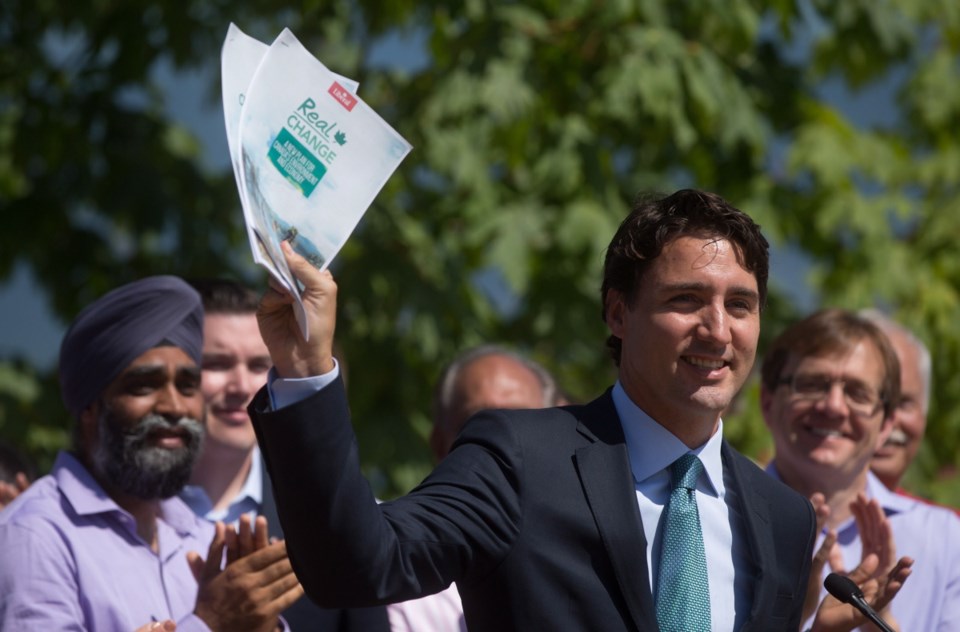VANCOUVER — Federal Liberal leader Justin Trudeau said Monday in Vancouver that he is opposed to oil tankers on B.C.’s north coast.
He told a news conference at Jericho Beach Park that “it’s important we keep our most pristine and important coastal areas protected” and that “everyone here in B.C. knows that the Great Bear Rainforest is not a place for an oil pipeline.”
As for projects such as the planned twinning of the Kinder Morgan pipeline in Port Metro Vancouver, he noted that Canada needs to get its resources to market but said that the current approval system is broken and designed to support the Conservative government’s objectives. The Liberals are committed to overhauling the federal environmental review process “so that projects currently in the works and in the future will actually establish the public trust necessary.”
Recalling how he used to sail in English Bay as a 13-year-old, “weaving in and about the tankers,” Trudeau also pledged to increased Canada’s coastal marine protected areas from 1.3 per cent to five per cent by 2017 and 10 per cent by 2020.
He also reiterated his commitment to reopen the Kitsilano coast guard base to better assure public safety.
The Liberal environmental plan also promises to:
• Enact the Cohen Commission recommendations on declining sockeye salmon stocks in the Fraser River, conduct a review of the Conservatives’ changes to the Fisheries Act and the elimination of the Navigable Waters Protection Act, and restore $40 million in ocean science and monitoring programs.
• Suspend admission fees to national parks in 2017 for the 150th anniversary of Canadian Confederation, starting in 2018 make admission free for all children and any person who has become a new Canadian citizen within the previous 12 months, and restore $25 million in funding cuts to Parks Canada.
• Attend the United Nations Conference on Climate Change in Paris later this year, and within 90 days, hold a first ministers meeting on combatting climate change and reducing Canada’s carbon emissions.
• Phase out subsidies for the fossil fuel industry while offering tax incentives to generate more clean technology investments.
• Establish the Canada Green Investment Bond to support both large and community scale renewable energy projects.
• Work with the U.S. and Mexico to develop a North American clean energy and environmental agreement.
In response, Mike Hudemam, a climate campaigner with Greenpeace Canada, said Trudeau's initiatives "lack the significant measures" needed for Canada to do its part to avoid a "growing climate crisis and avert catastrophe." What's needed are clear targets and policies, not vague statements, he said.
He added Trudeau's policies do reflect an "overwhelming opposition to tanker traffic in B.C." and that tar sands pipelines are having an effect on the national election race.
The federal election is Oct. 19.



